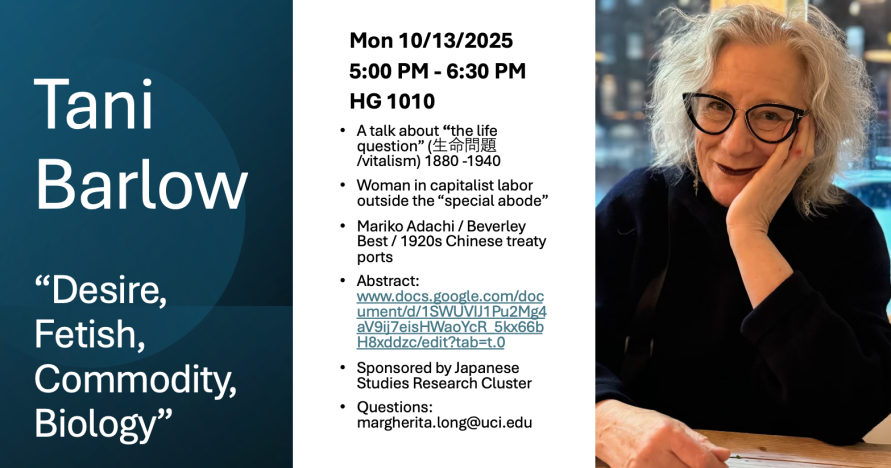
“Desire, Fetish, Commodity, Biology”
Tani Barlow, Rice University
Mon 10/13/2025, 5:00 PM - 6:30 PM, HG 1010
This talk is about the life question " (生命問題), and specifically vitalism, a term for organist theories of life between 1880 and the 1940s. International natural and social sciences, then absorbing a wide range of evolutionary ideas, opened places for thinking about where life originated and how it persisted in time. Marx, who was as caught in the question of organic life as others were, adopted Fuererbach’s category “species being” to stabilize his understanding of the human body.
Major emergent sociologies, and vernacular ones like social Darwinism, all speculated about the question of normative human experience; vitalists were particularly concerned with theories of organic life. This efflorescence of evolutionary science, medicalizing anatomy, biochemistry, physiology and the new understanding of mammal conception, in other words, put sexual difference at the center of life. This historical moment is well-studied; revisiting it now helps figure out why the normative sex in the labor theory of value is presumed male.
I’m going to introduce two feminisms that make accounting for a subject woman in capitalist labor outside the “special abode” that Nancy Fraser gives to reproductive labor, commonsensical. Mariko Adachi and Beverley Best theorize desire and the automatic fetish as ways to analyze commodities and biologies in 1920s, Chinese treaty port, commodity marketization and the commercial ephemera that took those theories into everyday life. The talk ends with some slides about the event of women and the rise of the uterus as the material presence of the split subject.
***
A talk in conjunction with Mimi Long’s F2025 Grad Seminar “Karatani & Friends,” syllabus here. Sponsored by the SOH Japanese Studies Research Cluster.
